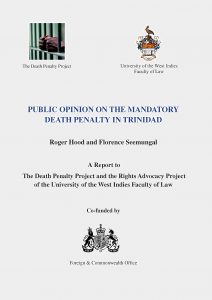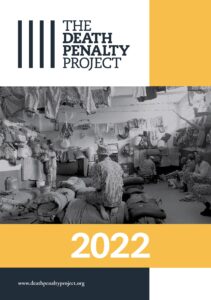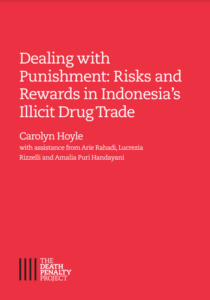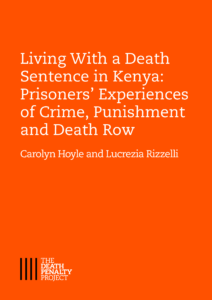Public Opinion on the Mandatory Death Penalty in Trinidad (2011)
- Reports and Studies
- 23 Feb 2011
This report, by Professor Roger Hood and Dr Florence Seemungal, presents findings from a public opinion survey carried out with a representative sample of 1,000 residents of Trinidad on the subject of the death penalty.
In particular, the study investigates attitudes towards the use of the mandatory death penalty for murder under Trinidadian law. The data was collected in Trinidad (but not Tobago for reasons largely of the cost involved in collecting a small sample of interviews) by face-to-face interviews between 16th November and 16th December 2010.
Interviewees were shown three scenarios describing a murder in order to gain a better impression of to what extent they support the mandatory death penalty for murder, or if they believed the death penalty should only be applied in certain cases. One scenario involved a robbery, another involved a domestic murder by a woman, and a third involved a ‘drugs-related’ murder.
Key findings:
- 91% of Trinidadìans are in favour of the death penalty, but only a quarter of them (26%) favoured the current law under which the death penalty is mandatory for all murders whatever the circumstances.
- When considering the scenarios, only 1 in 5, or 20%, of respondents thought that the death penalty was the appropriate punishment for all three types of crime on which they made a decision.
- In none of the cases in which there were mitigating circumstances, including those involving a violent robbery-murder with a firearm and a drug-gang-related execution, did a majority of those reaching a decision choose death. Respondents preferred to take into account mitigating factors, such as age and previous good character.
- The main justification given for applying the death penalty in the scenarios was the need for retribution.
- Support for the death penalty dropped significantly when asked how they would respond if presented with evidence proving that innocent people have in fact sometimes been executed – the percentage of persons who would still support the death penalty dwindled to 35%
- Only one in five (21%) of respondents put ‘more executions’ at the top of their list of the most effective policies to control murders, while 43% of the sample gave first place to ‘better moral education of young people’.
The findings reveal that there is little public support for the mandatory death penalty and call into question the government’s continued commitment to this inhumane policy. The research will be used to promote informed dialogue with policymakers and other key stakeholders on the future of the death penalty in Trinidad and Tobago
The survey was designed by Professor Roger Hood of Oxford University and Dr Florence Seemungal a Trinidadian psychologist, who is also attached to Oxford. It was commissioned by the Death Penalty Project in London in association with the Rights Advocacy Project of the University of the West Indies Faculty of Law. The survey was carried out by the experienced company, Market Facts and Opinions of Trinidad and was funded by grants made to The Death Penalty Project.
Related media articles:
24 February 2011, The Trinidad and Tobago Journal,”91% favor death penalty in Trinidad, survey finds- But details paint more complex picture”.
27 February 2011, Trinidad & Tobago’s Newsday , “Moonilal : Either killers or the PNM will be hanged tomorrow”
28 February 2011, The Trinidad Guardian, “Oxford study shows 91 percent support hangings”





